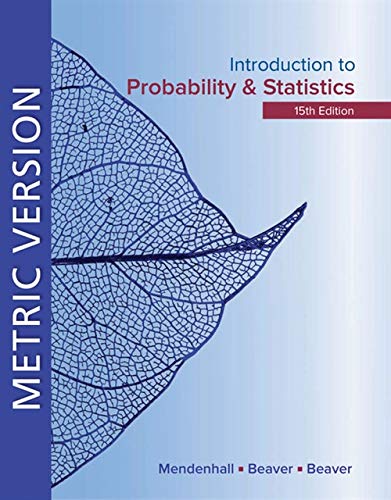1. A finite population consists of four elements: 6, 1, 3, 2. a. How many different samples...
Question:
1. A finite population consists of four elements: 6, 1, 3, 2.
a. How many different samples of size n52 can be selected from this population if you sample without replacement? (Sampling is said to be without replacement if an element cannot be selected twice for the same sample.)
b. List the possible samples of size n52.
c. Compute the sample mean for each of the samples given in part b.
d. Find the sampling distribution of x . Use a probability histogram to graph the sampling distribution of x .
e. If all four population values are equally likely, calculate the value of the population mean m. Do any of the samples listed in part b produce a value of x exactly equal to m?
Step by Step Answer:

Introduction To Probability And Statistics
ISBN: 9780357114469
15th Edition
Authors: William Mendenhall Iii , Robert Beaver , Barbara Beaver





